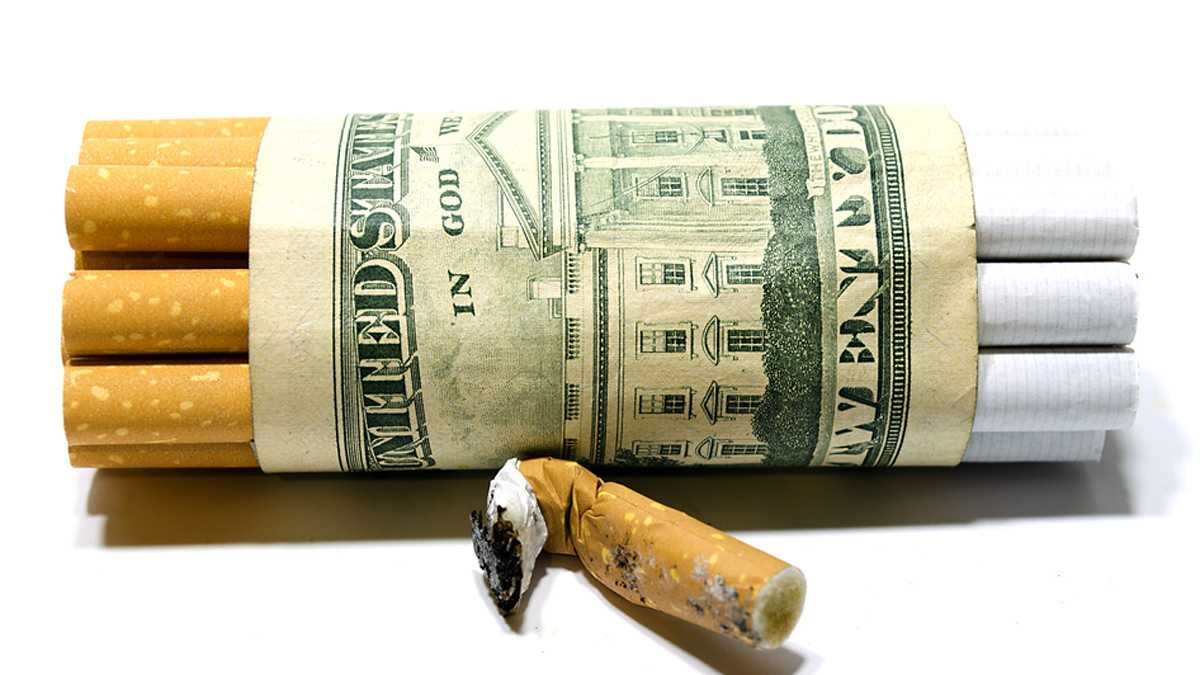Watching Philly education go up in smoke
 Cigarettes and dollar photo via ShutterStock " title="l_shutterstock_175429673" width="1" height="1"/>
Cigarettes and dollar photo via ShutterStock " title="l_shutterstock_175429673" width="1" height="1"/>
Cigarettes and dollar photo via ShutterStock
Is Philadelphia so desperate for funding that we are now dependent upon drug sales to pay for public education?
That’s what Philadelphia’s proposed $2-a-pack cigarette tax amounts to — drug sales.
The taxes of sin
Yes, I know cigarettes are legal, but smoking kills 480,000 Americans annually, costing us nearly $290 million a year in medical expenses and lost productivity. If any other drug were that deadly, it would be illegal.
Yet here we are, in such a quandary concerning Philadelphia education that we are looking to a deadly drug like cigarettes to save us.
Philadelphia’s proposed $2 a pack cigarette tax, if approved by state legislators, should bring in an estimated $45 million this year, and an estimated $83 million next year.
Not nearly enough
Even when combined with the $120 million from a state-approved sales tax, these proceeds will not be enough to fully fund our schools.
Philadelphia’s schools need between $216 million and $440 million in funding for the upcoming school year.
More than 300 School District employees have already been laid off. If the cigarette tax is not enacted by Aug. 15, according to School District Superintendent William Hite, an additional 1,300 layoffs are coming.
Times are so desperate that the School District has put out a request seeking proposals from anyone who has ideas on how to redesign Philadelphia’s lowest-performing schools.
Perhaps the “School Redesign Initiative” — which invites teachers, administrators, universities and community organizations to design and propose turnarounds — will bring good ideas to the table.
Still, I can’t help wondering how so many of our public schools became so dysfunctional in the first place, especially when other key government entities are doing just fine.
A negative outlier
I’ve never seen the Commissioner of Prisons begging for money to avoid layoffs of key staff.
I’ve never seen the military reduced to seeking turnaround ideas from the public.
I’ve never seen the police department short on guns or personnel.
I’ve never seen any of them depend on cigarettes for funding.
So how does a key function of government like public education get to a place where a cigarette tax is its savior?
Obviously, we are not as committed to education as we are to prisons, or to the military or to the police. Otherwise, those entities would be waiting on a cigarette tax, and public education would be fully funded by conventional means.
It’s ironic, really.
The very children who drop out of underfunded schools will be arrested by fully funded police and placed in fully funded prisons. Many of them will meet such a fate as the result of selling, using or committing crimes in connection with illegal drugs.
Meanwhile, cities like Philadelphia will benefit from drug sales in the form of cigarettes.
Eye-opening tragedy
I’d never considered the moral conundrum this presents until the death of Eric Garner, a 43-year-old husband and father who was violently arrested by New York police for allegedly selling loose cigarettes on the street.
Garner’s individual cigarette sales cut into the city’s tax proceeds, because he allegedly bought the cigarettes outside the city limits and resold them in New York.
In a city whose $4.35 cigarette tax is the highest in the nation, police aggressively pursued him, a scuffle ensued and he died. The incident, which was recorded on videotape, was reminiscent of two drug dealers fighting over turf.
I hope Philadelphia’s looming dependence on cigarette sales does not turn it into a place like New York, where police protecting city tax profits can kill a man for hawking loose cigarettes.
But if, by chance, we become such a place, we have no one to blame but ourselves.
We should never have devalued education to the point where we are grasping at cigarettes for funding.
We should never have allowed other areas of government to take precedence over our children.
We should never have put ourselves in a position to watch education go up in smoke.
More at Jones’s website
WHYY is your source for fact-based, in-depth journalism and information. As a nonprofit organization, we rely on financial support from readers like you. Please give today.


